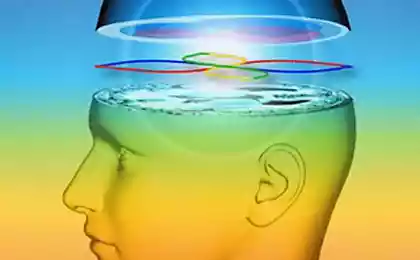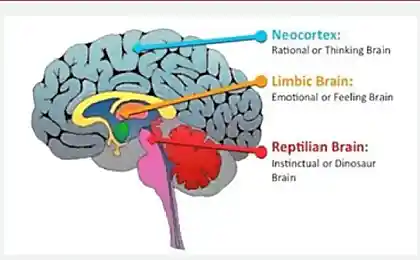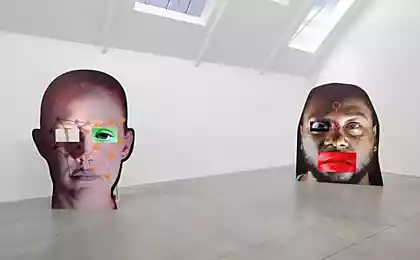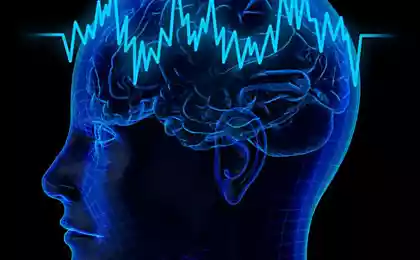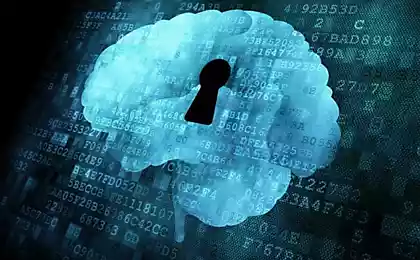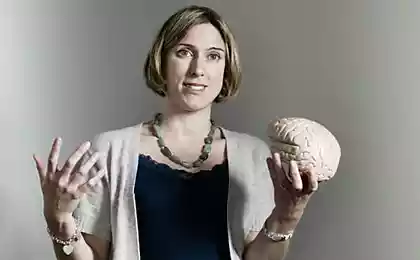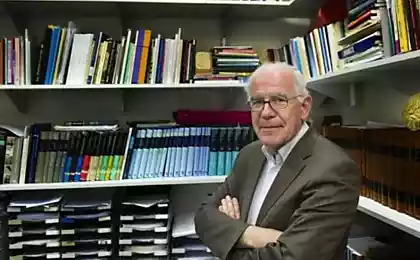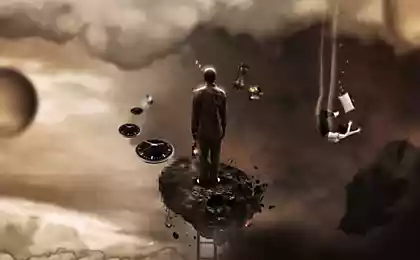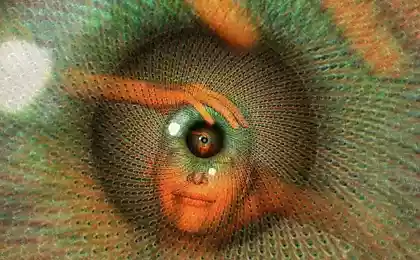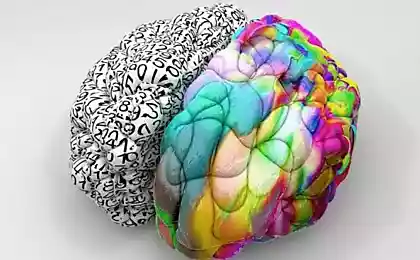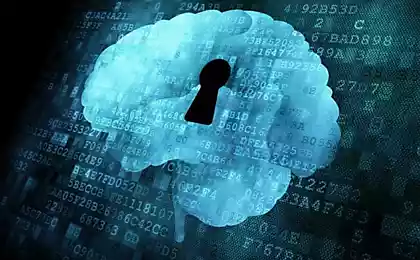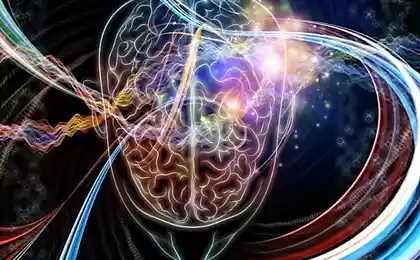495
The iceberg of the brain: our subconscious mind is smarter than we thought
It is considered that the subconscious mind is engaged in "rough work": reflexes, operations, basic facts, organization of proven actions. However, new studies show that it is not. In the experiments Israeli scientists have found out that subconsciously we can do mathematics, and more. Translation of the article, psychologist of the University of Sheffield, Tom Stafford.
Today there is an opinion that we know our own mind. In everyday life we are often faced with thoughts like: "What to eat for lunch?" or "Why did she do that?" and trying consciously to find the answers. It seems to us that the experience of conscious thought is a complete report on the work of the mind. This is quite natural — but wrong.
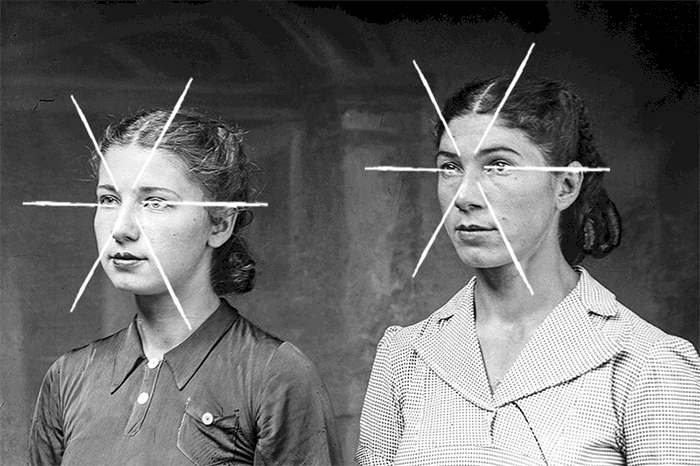
© Bill Domonkos
There is a "lower mind", and all psychologists agree with this — the area of the subconscious which does a huge amount of hard work in the process of thinking. Ask yourself, what is the capital of France, the answer will come itself: Paris. Wiggle your toes and they will start to move up and down in a complicated scheme, which you did not prepare consciously: her courtesy of the subconscious.
The big question that provokes a lot of debate in the field of psychology, is that is due to the subconscious mind, and that through conscious reflection. Or, to use the title of one of the first revolutionary studies carried out in 1992 — "the Subconscious is intelligent or stupid?". Popular opinion, as though the subconscious are only able to prepare simple action in the form of "stimulus-response", provide the underlying facts, identify objects and to help us with the movements that we have already done in the past. And complex cognitive skills, including planning, logical thinking and the ability to find connections between concepts, in contrast, require the participation of the conscious sphere.
Recent experiments of the group of Israeli scientists made it possible to question this view. This Ran Hassein and his colleagues — experts from the Hebrew University in Jerusalem — used a subtle visual trick: "continuous flash suppression". It is possible to convey information to the participants in the experiment despite the fact that they didn't realize it. It may sound unpleasant, but actually, everything is quite simple. The technology relies on the fact that each of us has two eyes, and our brain is constantly trying to bring two images in one folding picture.
In the experiment, was used to bend a beam of light sunglasses, causing eye of each participant saw a completely different image. The first eyes received a series of bright spots, quickly successive. It's so distracting that when the second eye has provided genuine information, people did not immediately start to realize it. It turned out that in this case the image that we could easily see, need a few seconds to reach consciousness (but if you close one eye and get rid of bright spots, you will see the "depressed" image).
The study's authors argue that "the subconscious is able to execute any basic tasks that can engage the mind"as part of the main experiment participants Hassina "subconsciously," offered arithmetic examples like "9 — 3 — 4 = ?". Every example was followed by a slide with a clear picture of the number, which was supposed to happen as a result. Subjects were asked to read it aloud as quickly as possible. Sometimes the answer was correct (e.g. "2") and sometimes not (e.g. "1"). The result was astounding, as the participants responded much faster if they had the correct number. Their minds had solved math problems, even if people didn't realize it.
The obtained results prove that the subconscious mind has far more sophisticated skills than many of us might think. Unlike other studies of unconscious activity, there was not automatic responses to stimuli: for correct decision was necessary to use the rules of arithmetic that, as previously thought, is only possible through careful reflection. The authors of the study believe that their use of technology can "change the rules of the game in terms of exploring the subconscious". They argue that "the subconscious is able to perform any basic task, which only can deal with consciousness."
This is a serious statement, and experts say that we have much work ahead if we decide to explore the strength and scope of his subconscious. As in the case of the iceberg, the major part of operations that performs our minds are outside our field of view. Still, experiments allow us to briefly look at what lies beneath the water. published
P. S. And remember, just changing your mind — together we change the world! ©
Source: theoryandpractice.ru
Today there is an opinion that we know our own mind. In everyday life we are often faced with thoughts like: "What to eat for lunch?" or "Why did she do that?" and trying consciously to find the answers. It seems to us that the experience of conscious thought is a complete report on the work of the mind. This is quite natural — but wrong.

© Bill Domonkos
There is a "lower mind", and all psychologists agree with this — the area of the subconscious which does a huge amount of hard work in the process of thinking. Ask yourself, what is the capital of France, the answer will come itself: Paris. Wiggle your toes and they will start to move up and down in a complicated scheme, which you did not prepare consciously: her courtesy of the subconscious.
The big question that provokes a lot of debate in the field of psychology, is that is due to the subconscious mind, and that through conscious reflection. Or, to use the title of one of the first revolutionary studies carried out in 1992 — "the Subconscious is intelligent or stupid?". Popular opinion, as though the subconscious are only able to prepare simple action in the form of "stimulus-response", provide the underlying facts, identify objects and to help us with the movements that we have already done in the past. And complex cognitive skills, including planning, logical thinking and the ability to find connections between concepts, in contrast, require the participation of the conscious sphere.
Recent experiments of the group of Israeli scientists made it possible to question this view. This Ran Hassein and his colleagues — experts from the Hebrew University in Jerusalem — used a subtle visual trick: "continuous flash suppression". It is possible to convey information to the participants in the experiment despite the fact that they didn't realize it. It may sound unpleasant, but actually, everything is quite simple. The technology relies on the fact that each of us has two eyes, and our brain is constantly trying to bring two images in one folding picture.
In the experiment, was used to bend a beam of light sunglasses, causing eye of each participant saw a completely different image. The first eyes received a series of bright spots, quickly successive. It's so distracting that when the second eye has provided genuine information, people did not immediately start to realize it. It turned out that in this case the image that we could easily see, need a few seconds to reach consciousness (but if you close one eye and get rid of bright spots, you will see the "depressed" image).
The study's authors argue that "the subconscious is able to execute any basic tasks that can engage the mind"as part of the main experiment participants Hassina "subconsciously," offered arithmetic examples like "9 — 3 — 4 = ?". Every example was followed by a slide with a clear picture of the number, which was supposed to happen as a result. Subjects were asked to read it aloud as quickly as possible. Sometimes the answer was correct (e.g. "2") and sometimes not (e.g. "1"). The result was astounding, as the participants responded much faster if they had the correct number. Their minds had solved math problems, even if people didn't realize it.
The obtained results prove that the subconscious mind has far more sophisticated skills than many of us might think. Unlike other studies of unconscious activity, there was not automatic responses to stimuli: for correct decision was necessary to use the rules of arithmetic that, as previously thought, is only possible through careful reflection. The authors of the study believe that their use of technology can "change the rules of the game in terms of exploring the subconscious". They argue that "the subconscious is able to perform any basic task, which only can deal with consciousness."
This is a serious statement, and experts say that we have much work ahead if we decide to explore the strength and scope of his subconscious. As in the case of the iceberg, the major part of operations that performs our minds are outside our field of view. Still, experiments allow us to briefly look at what lies beneath the water. published
P. S. And remember, just changing your mind — together we change the world! ©
Source: theoryandpractice.ru
Lyudmila Petranovskaya: do Not wrap a tight loop of guilt and resentment
The blue stone: questions without answers?


